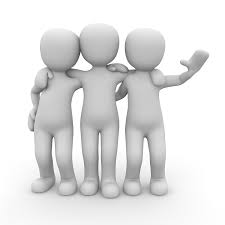BE A GOOD FRIEND AND USE YOUR INTERNAL DIALOGUE TO STRENGTHEN YOU
In this blog post you will learn:
Why you should be a good friend
Why you are your most important resource
How you can use your inner impulses for you
by Wolfgang Bretschko

Who does not know the situation. You start with a lot of energy and confidence into a new year, a new project. You have planned ambitious and you made a lot. You've made a list of what you'd like to do better or differently. But then reality breaks down over you, one or two unexpected events happen and all plans and good intentions are gone. This happens last week. I'm full of confidence and started the new year in a positive mood. On the second working day I get a call that the heating in the shop does not work and one hour later announces an employee.
I begin to imagine how complicated and costly the repair of the heating system will be. I imagine how the customers with Russian fur cap sitting in our restaurant. I blame myself for not being careful enough in the selection of the employee. Soon a mosquito turns into an elephant. In a flash my intentions and plans are gone.
Every little problem quickly turns into a catastrophe; one worst case scenario chases the other. An inner dialogue has set in motion that starts unconsciously and makes my life hell. It's almost as if I were harboring a few inner enemies who are delighted to make me feel bad.

We often tend to self-sabotage.
We make life difficult for ourselves.
Out of sheer thinking and brooding, we do not get into action.
Now imagine, a very good friend comes to you and tells you about the same incidents. He tells how depressed and frustrated he is, how dissatisfied he is with himself and the world. You see that he doubts himself and paints the world more and more negatively.
How would you react? Would you blame him? Would you tell him that you have always known and he is simply not up to the task? Would you start decorating the incidents even more gloomily, dragging the negative spiral down a few more turns? Hardly, he probably would not come back for a second time with his problems. He would go away even more frustrated than he came. Your friendship would not be long lasting.
We should treat ourselves at least as benevolently and appreciatively as we treat our good friends and how we want to be treated by our good friends. We have to get along with ourselves all our lives so we should make friends with us. We should know when we need a bit of encouragement. We should know when it is time for a break and our energy stores are empty.
We ourselves are our most important resource.
Why are we often much more critical of ourselves than of other people?
Why do we tend to judge and evaluate ourselves much harder than we would treat good friends?
We are constantly engaged in an internal dialogue, assessing and judging all situations, whether they are good or bad for us, and whether there is a danger.
These constant assessment and evaluation processes often take place automatically and we are not aware of these processes and processes. We drive with autopilot. In order to get to know each other better and to be a good friend, we should always turn off the autopilot and take the helm into our own hands.
There are many theories and ideas about the inner enemies. Very useful I find the model of the internal impeller of the American transaction analyst Taibi Kahler. It helps to better understand and constantly control the ongoing internal dialogue.
He defines five impellers that are considered typical of people's self-control.
• The "Be strong!" – impeller
• The "Be perfect!" – impeller
• The "Make it all right!" – impeller
• The "hurry up!" – driver
• The "Strict yourself!" - Drive